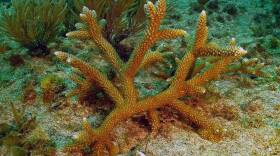-
The Bulls have won two straight since a lopsided loss at Miami and is back in the top 25 after a one-month absence.
-
An HHS probe into an transplant affiliate run by the University of Miami Health System "uncovered years of unsafe practices, poor training, chronic underperformance, understaffing and paperwork errors."
-
The Bulls didn’t vanish completely, showing up among teams receiving votes. But their attention now turns to a home game against FCS team South Carolina State and their American Conference schedule a week later.
-
The Bulls will soon find out if the blowout loss drops them out of the rankings after the bigger and more talented Hurricanes overwhelmed them from the start.
-
The Bulls have already defeated two ranked teams and face what should be a bigger challenge against the Hurricanes at Hard Rock Stadium. Both teams have QBs on hot streaks, and USF's defense has been strong.
-
Hayes, who played at Largo High School, was charged with three counts of vehicular homicide and one count of reckless driving with serious bodily injury.
-
The researchers, with others from Honduras, are looking for ways to help reefs survive increased temps caused by global warming. The work could provide a blueprint for working across the Caribbean to share corals.
-
The U.S. State Department finds almost 45,000 international college students studied in Florida during the 2023-2024 school year.
-
UM's Cam Ward threw for 404 yards and three touchdowns to help the eighth-ranked Hurricanes rout USF 50-15.
-
Hospitals and other medical facilities are increasingly turning to the expertise of healthcare architects, patients, their families, physicians and nurses. The University of Miami Health System has a growing volunteer group helping design more effective care facilities.
-
A program at the University of Miami pairs teen girls with female researchers as they catch 300-pound sharks. The idea it to encourage more girls to enter STEM careers.
-
Expected in 2025, the Kenneth C. Griffin cancer research center will expand the efforts of the University of Miami's 400-strong team of experts.
Play Live Radio
Next Up:
0:00
0:00
Available On Air Stations












